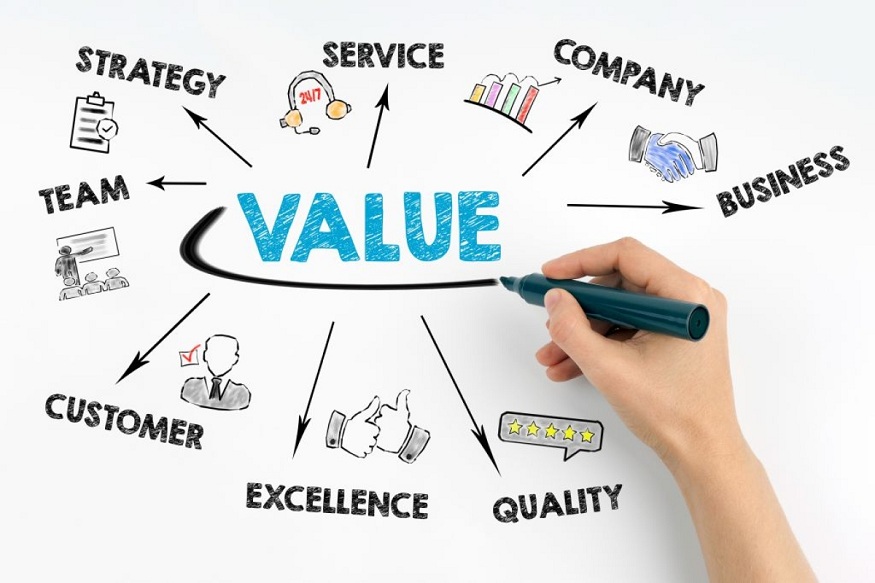All small business owners eventually want to know how valuable their business is. Whether you’re aiming to sell, to attract investors or to learn more about what your business is worth, you need to get a proper business valuation for small business. Just as you visit a doctor to track your health, you should use an audit to see how your business is faring. Even though business valuation sounds technical, it really comes down to knowing what makes your firm valuable and how others view it. This article helps you to plan your next steps better and get more self-assurance during meetings. Even if you’re not good at numbers, you can manage this process well and get the guidance needed to grow your business.
-
Understanding the Basics of Business Valuation
Business valuation is just about working out what your business is worth today. Imagine you have your house appraised before selling it – you need to know what it is worth. All aspects of your income, assets, customer base and market standing are assessed during the process. Many methods exist and each reflects your value in a unique way. Your earnings are important to some, your assets to others and your company may be compared to recent sales of similar businesses. You must realize that your business value extends beyond just its cash on hand. Your reputation, customers’ loyalty, the place of your business, machinery used and your team’s knowledge are part of it. A larger picture gives you ideas for raising your worth and readies you for future business opportunities.
-
Know When You Need a Business Valuation
Valuing a business can depend strongly on timing, so there are many cases when calling in professionals is necessary. When you’re ready to sell your business and establish the asking price is the most obvious time to do this. It is just as important to value the business correctly when recruiting new partners or investors, since the percentage they pay for will need to be decided by everyone. The startup company valuation services are particularly crucial during funding rounds when determining equity stakes and investment terms. When getting divorced, your assets are often divided by valuing your business, while also being important knowledge for estate planning and taxes. If you don’t sell, valuations on a regular schedule show you your progress and make it easier to plan wisely. Various business owners have their company assessed yearly to review its results. You need correct valuations for insurance reasons so your coverage meets your needs. Don’t rush – understanding your business value ahead of time helps you work on it sooner.
-
Gathering Your Financial Documents
It is essential to gather and organize your financial papers similarly to how a detective would for any valuation. Your profit and loss statements from the last three to five years reveal your earning history and reveal the normal periods in your business. Your assets, debts and financial condition in a given period are shown clearly on a balance sheet. Official tax returns are trusted by validators, so assembling a few years’ records is necessary. It’s important to understand cash flow statements since they explain how money moves in and out of your company and sometimes show things beyond just your profit. These reports also include bank statements, food you are owed and your inventory. If you sign deals with key customers or suppliers, don’t forget to list them. If your documents are well structured and thorough, your measurement of the company’s worth will be more precise.
-
Choosing the Right Valuation Method
There are several ways to value a business and which one you use depends on your company’s characteristics. The income approach looks at your ability to earn and estimates future funds which is perfect for effective service companies. Companies with many physical resources such as manufacturing firms or real estate businesses, benefit from using asset-based approaches. Using market approaches, you can see how already sold businesses are performing in order to judge the current market situation. A number of evaluators take various methods and look at several factors in your scenario, then select the outcome that works best for you. For example, a tech startup uses market comparisons, but a family restaurant pays attention to assets and how much it can earn nearby.
-
Preparing Your Business for Valuation
When preparing for valuation, it’s similar to preparing your home for company – you want everything clean and nice. Make sure the first step you take is to review and clean up all your financial records. Clear up any remaining issues with the law, make sure your contracts are updated and handle any disputes that could get noticed. Put everything responsible for business routines such as your operations manual and employee handbook, in order so your business can operate smoothly when the owner is not around. It’s best to value your business when your company is successful, not when past successes have turned into failure. Ensure your team can handle questions related to operations, future direction and what’s happening in the market.
-
Understanding Market Conditions and Industry Trends
Your company’s value is influenced by the state of the current market. Financial factors like interest rate, inflation and business confidence affect people’s buying habits. Trends that affect an industry also matter – stocks from thriving sectors usually have higher multiples compared to those from struggling sectors. Keep an eye on current sales of similar enterprises nearby to learn what is happening in the local market. Follow important signs in the economy and think about how they can influence your industry’s performance. When some businesses change greatly with the seasons, their worth can change too. Changes in technology, updates in law and changes in the population all impact the business’s value. The evaluator should keep these aspects in mind, though understanding them yourself allows you to ask good questions and make better sense of the results.
Conclusion
When you set your expectations right and prepare well, business valuation is not as scary. It’s best to begin early, keep your information tidy and rely on experts who fully understand your business sector. Working with qualified 409a valuation providers ensures compliance with tax regulations while establishing fair market value for employee stock options. Be aware that using data is important in valuation, but looking at market conditions, current trends and key relationships is equally necessary.

